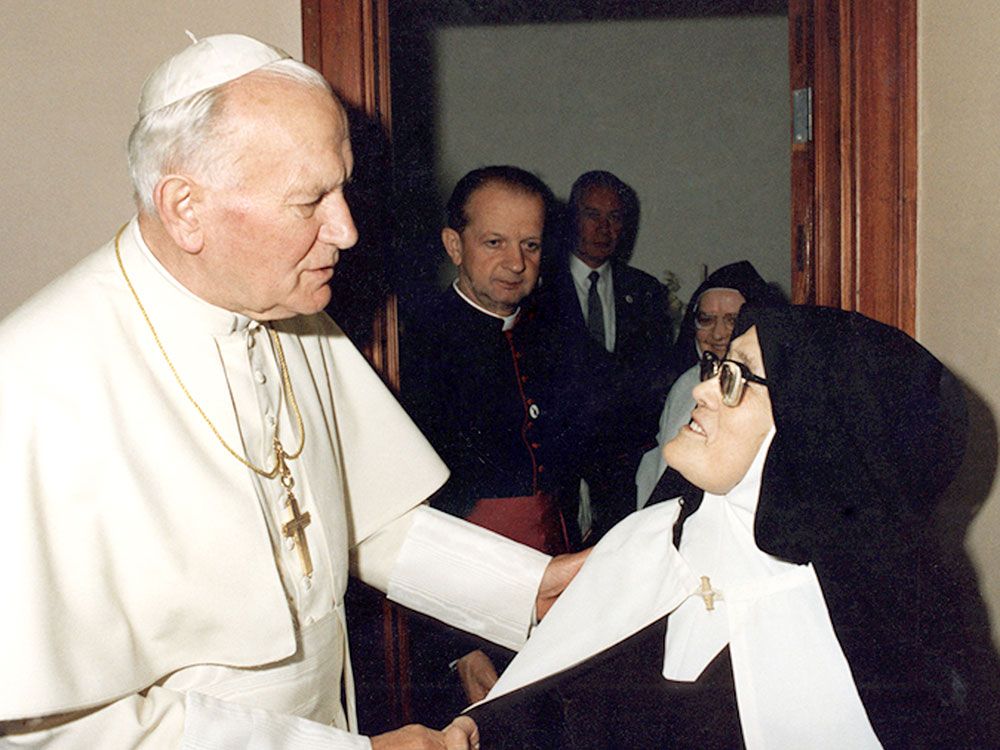How many persons would work on eliminating or controlling a fear a year? We are plagued with fears, phobias. As botanists have sought to give a name to every living plant, a unique researcher has identified 530 phobias (there is even a fear of fear phobia) and continues to expand the list as he discovers new ones.
One woman serious about taking control of her fears, created a tick list to deal with a fear a year. In a film, she identified her fear for a particular year – fear of heights. To overcome this, she decided to take up skydiving in her fifties. While filming her training, she uninhibitedly exposed her raw feelings and agitation throughout the training ordeal. Finally, a day came for her first jump and she was still sweating. But she jumped – successfully! Rather than resting on her laurels, she was already deciding on what the fear she would meet head on next.
It is important to keep in mind that fear is an emotion. Love, however, is an act of the will. In the West, the ancient Greeks are credited with distinguishing emotion and reason. Emotions were viewed as the ‘loose canon’ in human behavior. Reason was superior and more predictable than emotions. They realized one couldn’t eliminate emotions altogether as they are an essential dimension of human behavior. The individual, in a manner of speaking, is alone on a bicycle built for two, emotion and reason. The challenge to the individual is to keep pedaling the two in a healthy tandem. No easy trick. As the playwright Paddy Chefvsky noted: “Passion is a balky beast; it rides the rider.” The amygdala in the brain has been identified as triggering our emotional reactions. When emotions dominate, the bicycle careens, toppling the rider. If reason loses to emotions, there can be catastrophic problems.
Psychologists identify exposure therapy as a means of controlling our emotions. The woman cited earlier had her own exposure therapy program to control, if not overcome, her fears. She succeeded because she worked at it. Unfortunately, too many persons feed their fears and, as a result, become victims of their own fears.
Often, people confuse love as a feeling. The great contribution of the Marriage Encounter Movement was to underscore love as an act of the will. We can have loving feelings but that is not essentially love. Love, as an act of the will, can be understood when we do something and yet have no loving feelings, and even contrary ones. A parent in disciplining a child may say, “It hurts me more than you.” A parent may not wish to discipline a child but wills to do so out of concern for the child’s development. A parent who wants to ‘feel good’ may choose not to discipline the child, concerned more about one’s self than the other. So when Jesus says, “Love your enemies,” we may more often not have any loving feelings but simply forcefully exercise our will to love and not take revenge.
JESUS ON LOVE AND FEAR
The last will and testament to His disciples at the Last Supper was, “A new commandment I give you – love one another.” In the course of His ministry, He revealed the depth of the challenge to love by disputing common acceptance of love: “If you love those who love you, what reward will you have? Even tax collectors and sinners love those who love them. In other words, He doesn’t have in mind a mutual admiration society. Ultimately, He makes love of the enemy inclusive. To do such is to overcome our negative emotions of hating those not like ourselves or those we consider despicable and towards whom we harbor negative feelings.
In the process of challenging His disciples to love even the unlovable, He questions why His disciples are fearful and exhorts them to “be not afraid.” Fear is an emotion and can be overcome by willing to love. The Letter of John underscores this new teaching of Jesus: “Perfect love casts out fear.” Clearly, Jesus underscores the triumph of will over emotion.
In the Jewish Scriptures, the word ‘fear’ is used about 270 times, and about 70 times in the Christian Scriptures which are much shorter than the former. To my awareness, there is no challenging of fear in the Jewish Scriptures but reinforcing it. But Jesus questions rather than inculcates fear, “Why are you afraid?” He touches upon fear as primal in the person. Fear perhaps is the unconscious response to a world in which people lived in dread and fear for their life and environment. Understandably, ancient people saw elements of nature, such as thunder, something to be afraid of. Jesus challenges us to move beyond the primal. A story is told of an Alaskan shaman who was questioned about his tribe’s belief system. After repeated probing, the shaman replied, “Look, we don’t believe. We fear.” To overcome fear, Jesus proposed faith – the ability to imagine otherwise. Faith frees one from being a victim to being an agent, a subject of events and not a victim of them.
“Fear of God is the beginning of wisdom,” proclaims the Book of Proverbs, promoting this approach to God. Fear here means ‘dread’ not awe as the translation has been softened by some. The Hebrew root word is yare (dread). Fear becomes incompatible, however, with Jesus’ emphasis on loving God with all one’s heart, mind and self. Fearing God would be incompatible to His preaching of “be not afraid” even of God.
In Jesus’ tradition, there is a break from the stranglehold on the person to be under the vise of fear with the encouragement to the person to act willfully. Love is a verb for Jesus, not a noun. This is a significant breakthrough in human consciousness.
The Christian Scriptures are not a complete break, however, from the Jewish tradition but a carryover of many negative concepts from it. The challenge is to separate the old wine from the new. While fearful components remain in the Christian Scriptures, like hell and devils, they are to be trumped by the insistence of Jesus’ new teaching of love. Love takes priority and is the new wine offered by Jesus.
Fear is often used as a means to enforce people to do the right thing or pay the penalty. But modern psychology has been able to demonstrate that fear is not effective in doing so. To be motivated by love is a higher act of consciousness for a person to respond to life’s challenges than fear.
FEAR IS COUNTERPRODUCTIVE
Fear is less productive. A program “Scared Straight” was designed to teach adolescents to avoid going to prison by exposing them, scaring them to the raw horror of prison life. The program backfired as more young persons exposed to it were more likely to be criminals than young persons in another control group who were not scared. The first word Paul uses to describe love is ‘patient.’ Fear may achieve immediate results but love has more positive long-term effects. Some parents enforce fearful punishments on their children in order to get them to immediately comply to their wishes. The fear of punishment achieves immediate compliance but, in the long-term, leads to alienation of children from parents. “Fear has to do with punishment, and he who fears is not perfected in love” (1Jn. 4:18).
Mahatma Ghandi stated: “Where there is fear, there is no religion.” But religions, and other institutions, have sought to create fear in order to manipulate members. In Judaism, Yahweh is constantly depicted as an avenging God. According to the prophet Nahum: “The Lord is a jealous and avenging God; the Lord takes vengeance and is filled with wrath. The Lord takes vengeance on His foes and vents His wrath against His enemies.”
But this God will not even let the Israelites free of His wrath. “So the anger of the Lord was kindled against Israel, and He gave them over to plunderers, who plundered them. And He sold them into the hand of their surrounding enemies, so that they could no longer withstand their enemies” (Judges 2:14). And this was a milder form of punishment Yahweh promised the wayward Israelites. He had worse things in store for them if they disobeyed as found repeatedly in the Jewish Scriptures. The emphasis of Jesus on love is a departure from the tradition in which He was raised. Yet many Christians still seek a God who takes revenge than reconciles with those who are not faithful.
In Islam, which was influenced by Judaism, fear of God is reinforced, “It is only Satan that suggests to you the fear of his votaries: Be not afraid of them, but fear Me (Allah); if you have faith…fear not men, but fear Me.” (Koran 3:175) Mohamed Atta, one of the 9/11 hijackers, in his last will and testament warned everyone to fear God. He took to heart Allah’s admonition. Islam often resorts to public physical violence like beheading for transgressions it deems immoral. Again, the fear of punishment is viewed as an incentive to behave but is not a fail-safe deterrent.
THE HINDU AND BUDDHIST EXCEPTIONS
The world’s oldest religion, Hinduism, rather than instilling fear, seeks to liberate people from the clutches of fear. Its view of the divine and creatures is not one of a servant or slave on suppliant knees but rather being like a child on the lap of God. Hence, words like ‘fear of God,’ ‘sin,’ ‘punishment,’ ‘judgment’ and ‘commandments’ are foreign to Hinduism. The fear of death in Hinduism teaches reassuringly that one will reincarnate into another physical body.
While Christianity and Islam were affected by Judaism, Buddhism was by Hinduism. Rather than reinforcing concepts of punishment and fear, it sought means to enable followers to overcome fear and its offshoots. For Buddha, suffering was the root of fear. He sought to exorcise fear and thus reduce human suffering. “The whole secret of existence is to have no fear.” Or as Franklin Roosevelt said centuries later: “The only thing we have to fear is fear itself.”
A FORM OF MANIPULATION
Because fear is universal, those in position of authority often use fear to manipulate and control people. The classic example is the medieval political strategist, Machiavelli, who wrote: “Upon this, a question arises: whether it be better to be loved than feared or feared than loved? It may be answered that one should wish to be both, but, because it is difficult to unite them in one person, it is much safer to be feared than loved when, of the two, either must be dispensed with … but fear preserves you by a dread of punishment which never fails.”
George W. Bush effectively used fear to scare Americans into supporting his war on terror, invading Afghanistan and Iraq. The terrorist became the bogeyman of the American public which, in turn, acquiesced to Bush, providing him carte blanche of the monies and policies to beat the bogeyman “over there” rather than “right here.” Bush was no dummy, aware of that deep well of fear underpinning our American insecurity. He essentially paraphrased Roosevelt, with a stomach-churning twist: “The only thing we have is fear itself.”
Unfortunately, in the Catholic tradition, there have been attempts to make fear dominant rather than the primacy of love which is the heart of the teaching of Jesus. The Dictionary of Catholic Theology is an example which made fear dominant. “From a pastoral point of view, one must ask whether it is useful to preach on hell in our day, and human wisdom tends to respond, no. True traditional wisdom has thought otherwise. Certainly, it is always better to come to Jesus because of love, but fear is capable of leading to love, even fear of hell. It is necessary to temper that fear with love, but it is also necessary to engender love of God through fear of chastisements, and to avoid sin by the thought of the divine sanction, i.e., hell. Fear is just as necessary today as it was of old, because human nature is always basically the same.”
This would more accurately reflect the Jewish Scriptures than Jesus breaking new ground with the primacy of love. The citation is a rejection of the teaching of 1 John that “perfect love casts out fear.” Fear and love are not compatible. Fear with love can’t be tempered. Love casts out fear. It is either or.
SPIRITUAL ABUSE OF CHILDREN
To focus on the primacy of love, particularly in young children, is vital for their mature spiritual development. Sadly, too much emphasis had been making children fearful at too early an age. This is tantamount to child spiritual abuse. We are aware today of how many lives have been destroyed by the sexual abuse of children. There has been too little focus on the spiritual abuse of children. And what happens at an early age takes a life-time to uproot, if ever.
The philosopher/theologian Soren Kierkegaard noted, in the eighteenth century, that a wrong perspective from youth can lead to a life of distortion.
Jesus focused on the conversion of adults to the Kingdom of God with the primacy of His new commandment, “Love one another.” Love is to be the starting point as well as the ending point. But when children are overcome by fear at an early age, rather than the concept of love dominating, they are spiritually abused.
A father shared a true life event about his daughter. Father and daughter were preparing supper. He noticed how his little daughter Ruth, eight years old, seemed disturbed. Finally, when he saw tears streaming down her cheeks, he asked her what was upsetting her. “Oh Daddy, I’m scared I am going to hell!” That day she had been introduced to hell by her religion teacher. What the teacher told her frightened her inconsolably.
At a tender age, children cannot process concepts of hell, devils, eternal punishment, sin, etc. These are not subjects about which children normally initiate questions. They are difficult concepts for adults to process. And to force them on children is spiritual abuse. “Let the children come to Me.” One cannot fathom Jesus taking children on His lap to tell them horror stories. There has been too much exposure of little ones whereby fear is inflicted unnecessarily upon them.
A friend shared a real life experience as a child growing up in the west of Ireland.
“Every year, we had a mission in the parish. We did not have electricity, so a few oil lamps were spaced throughout the church. They cast weird shadows all over the place, a perfect setting for Fr. missioner to scare the living daylights out of us – with his descriptions of the unending everlasting fires of hell, for all eternity, world without end, and all – for one bad thought about sex. The thoughts came in battalions so the only hope was surrender. Leaving the church, we had to hold hands, because we could not see anything except the impression of those dancing flames on our inner minds.”
Institutions have resorted to fear in order to make people conform to their agendas. The church is an institution not immune from members who fall short of the Jesus’ challenges. Jesus said to Peter who is a symbol for the church as an institution: “Get behind me, you Satan, for you are a stumbling block.” The church, as an institution, has been a stumbling block particularly when it uses fear to manipulate behavior rather than as a patient parent willing to love otherwise.
As the Letter to the Hebrews reminds us: “Let us keep our eyes fixed on Jesus who is the source of our inspiration and who will perfect our faith.” We are to be focused on this Jesus who chided His disciples, “Why are you afraid?” and enjoined them to “be not afraid.”
A SECOND FIRE
To use the emotion of fear is contrary to the teaching and spirit of Jesus. Any attempt to induce fear must be roundly rejected. The primacy of love must be the context to motivate members. It is a call not to act on an emotion but to will to love. Teilhard de Chardin wrote: “Someday, after mastering the winds, the waves, the tides, and gravity, we will harness for God the energies of love and then, for a second time in the history of the world, man will have discovered fire.”
Chardin is reflective of Jesus’ intent: “I have come to cast fire upon the earth and would that it were enkindled.” This is the fire, the power of love, which will transform the world.
We know too well the effects of fear which has led to endless violence upon the planet. We have yet to experience fully the power of love to transform and reconcile. We know it, though, in the singular powerful examples when persons choose to will to love even the enemy, to reject revenge and seek reconciliation. We saw it in South Africa after apartheid, when black people did not engage in wholesale revenge but set up a Truth and Justice Reconciliation Commission to heal the past injustices. In willing to love, the possibilities are infinite.
The church, as an institution, must be primarily the school of love. For it to be fully realized, there must be the exorcism of fear. If the teaching that perfect love casts out fear, as proposed in 1 John, then let us love, as an act of the will, to cast out our own fear.



























